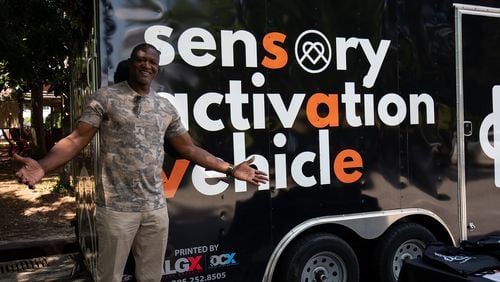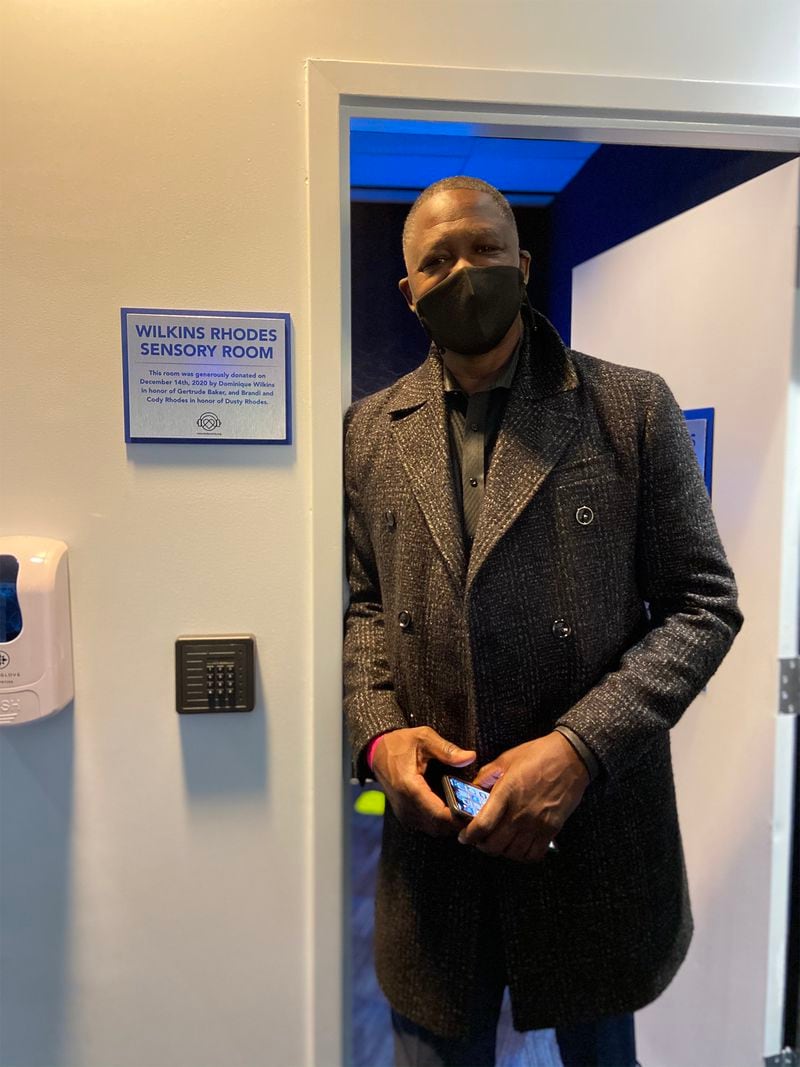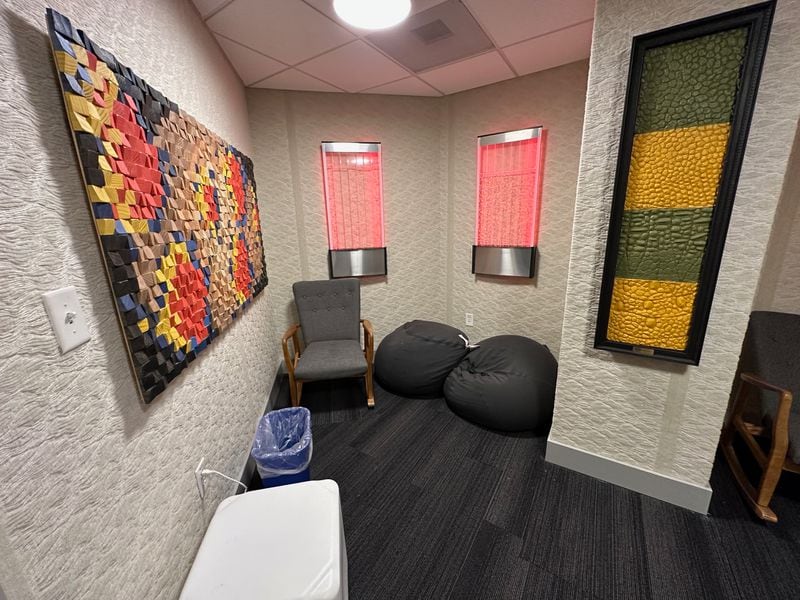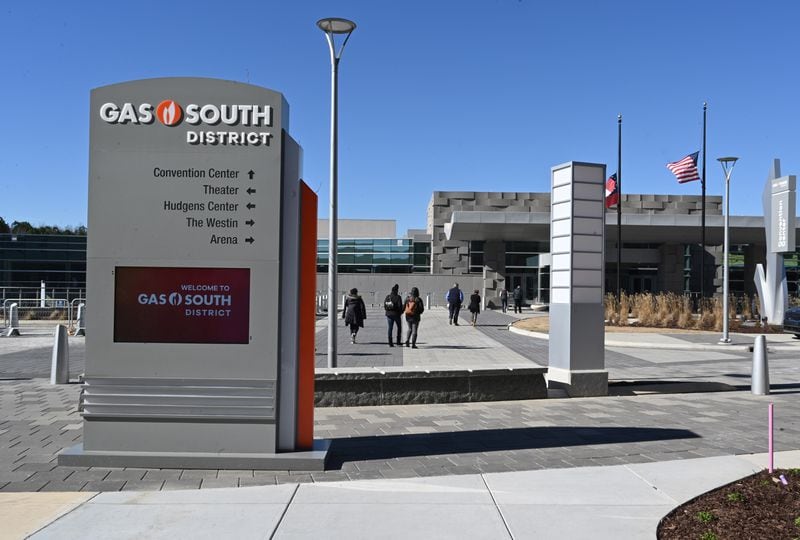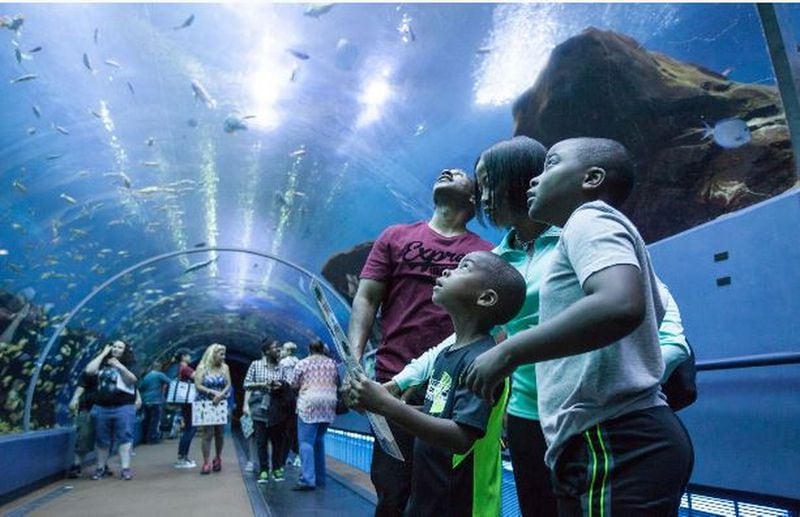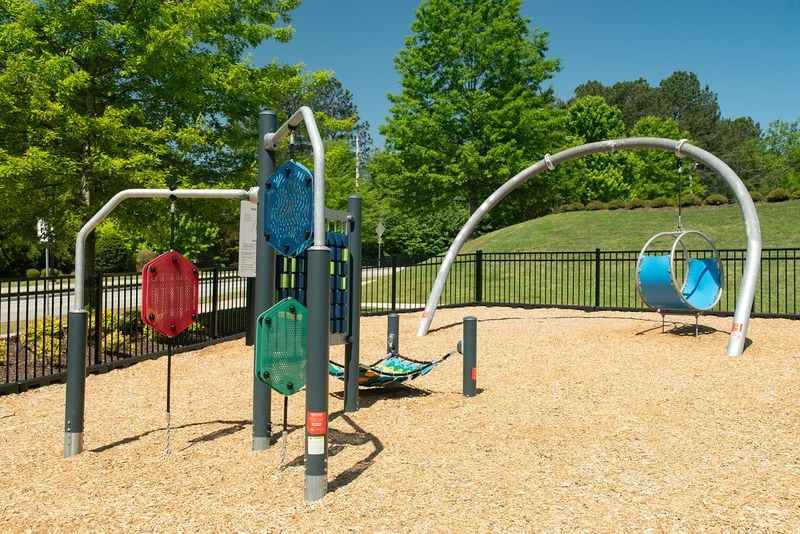Basketball great Dominique Wilkins, who has two children on the autism spectrum, knows first-hand the importance making accommodations for children with autism and those with sensory challenges. “I’ve been in those sensory rooms where people need to go when they can’t interact or deal with loud noises, all the lights and people. My daughter has gotten better over the years but she could not take the loud noises. She would have to go to the family lounge so she could relax and have a pleasant experience.”
Adding, “She was even scared of Harry the Hawk! Harry is the nicest.”
Wilkins is chairman of KultureCity, a nonprofit organization dedicating to creating a “world where everyone can be accepted and included.” They work with organizations such as the National Basketball League as well as other major sports leagues, arenas, municipalities and Carnival Cruises to provide assistance to those with sensory needs through special rooms, sensory bags and Sensory Inclusive First Responder Certification.
Credit: Handout
Credit: Handout
“It’s about letting people, especially autistic children and their parents, know that when they go see a game, that there is a place where they can have structure and healthy options so they can relax,” he said.
In 2017, the Atlanta Hawks, a team Wilkins spent most of his Hall of Fame career with, was the first team in the Southeast Division to play in a sensory-inclusive venue; now all NBA teams play in one.
Credit: Handout
Credit: Handout
Increasingly businesses, particularly in the hospitality arena, are recognizing and adapting to the needs of those on the autistic spectrum, which according to the Centers for Disease Control and Prevention, number about one-third of all children.
Training and Sensory Rooms
LEGO Discovery Center Atlanta recently became a Certified Autism Center (CAC). Working with the International Board of Credentialing and Continuing Education Standards (IBCCES), the LEGO staff underwent autism sensitivity and sensory, environmental and emotional awareness training to help them recognize and assist in case a behavioral issue arises.
The center also developed a detailed sensory guide that provides insight into how each attraction or zone may affect each of the five senses and trigger a reaction. It rates things such as background music and sounds, bright colors, dark spaces, lighting and close spaces. Such information makes it easier for parents to navigate and determine which ones might present challenges for their children. There are also low sensory areas to allow a time-out in a less stimulating environment. Ear plugs are also available to dampen the sound.
Marcia Powell, director of marketing and experience for the Gas South District in Duluth, said their staff is trained to support autistic children and guide them to a designated quiet area so they can “take a breather and have a little time to calm down.”
Credit: Hyosub.Shin@ajc.com
Credit: Hyosub.Shin@ajc.com
Sometimes parents will contact the arena ahead of time to make arrangements, either before the event or, in case of a meltdown, during it. “If we know ahead of time we can meet them and maybe bring them to a special entry point or separate door so going through the front gates won’t be as stimulating. Or they might ask which seats are less public and stimulating,” she said.
Regardless, the staff is always on the lookout and trained to help guide the family to the designated area safely and without issue. “Usually it’s one of our staff noticing that a child is crying or clearly overstimulated. They will approach the family and suggest the quiet area. It doesn’t happen often and it can vary by event because some shows can set them off more than others due to noise levels, for instance. But it happens enough.”
Another local attraction, the Georgia Aquarium, achieved its CAC status in 2018, which isn’t surprising since the aquarium was founded by Bernie Marcus who started the Marcus Autism Center. The aquarium also works with KultureCity.
The aquarium has sensory friendly hours, which allows guests a less stimulating visit with all audio and visual screens turned off and lights lowered. Sensory bags with fidget tools, headphones, and an I.D. are also available as well as a sensory room to help the individual learn to regulate their brain’s negative reactions to external stimuli by developing coping skills for these experiences.
Even venues and events that lack dedicated rooms can offer help with KultureCity’s sensory activation vehicle, which provides a mobile sensory experience to events that lack the physical space for a dedicated sensory room.
Adaptive playgrounds
An adaptive recreation program and events were created in a partnership among the cities of Alpharetta, Johns Creek, Milton, Roswell and the Ed Isakson YMCA that is designed to expose participants to new experiences, enhance self-esteem, self-confidence, independence and promote community involvement. There are a number of adaptive activities including dance, bingo and movie nights as well as sporting events.
Credit: City of Johns Creek
Credit: City of Johns Creek
Johns Creek recently opened Bell-Boles Park, a new playground with special equipment designed to promote sensory development and discovery.
“All of our playgrounds have elements that are for kids of all abilities but our most current installation (Bell-Boles) has more elements geared for autism,” said Erica Madsen, city engineer. “We have signs with calming color and more tactile things. People with special needs are definitely coming and enjoying it.”
The Atlanta Hawks and State Farm, KultureCity and Atlanta’s Parks & Recreation Department developed the Coan Park Recreation Center, a one-of-a-kind Good Neighbor Club that features multi-sensory inclusion space to provide a quiet area, a flat screen TV for gaming and movies, a video game console and iPads.
It’s a balancing act
The reality is that it is still a challenge for businesses. Shaun Doty, whose restaurants include Bantam + Biddy and the newly opened The Wurst Beer Hall, has been active in the autistic community since his son, who now attends Kennesaw University, was diagnosed.
Balancing the needs of a child with sensory issues with the other guests is a “tough one,” said Doty. “I’ve been on both sides. You want to find environments that will be supportive but it’s difficult for a restaurant to address the needs of one individual when there are others who may not be cool with it,” he said. “A parent should know what their child is capable of and don’t force it. It’s like being next to a crying baby on a plane. You may love babies but you don’t want to be sitting next to one and watch parents pulling their hair out. In the end, you really hope and expect guests to be tolerant and nonjudgmental.”
And, that is exactly what advocates like Wilkins want. “We have to do so many things to help,” Wilkins said. “Training first responders to recognize people with sensory needs or having meltdowns and how to deal with them. We need to give them options so they have a better quality of life and not feel threatened. We have to help them re-enter society and not be so stressed out.”
He just wants people to know that “there are healthy options out there and you can access information. A lot of times people and businesses don’t want to deal with autistic people and children. They get overlooked and left behind to fend for themselves. We need to give them the tools to function.”
Adds Doty, “The challenge is finding environments that are going to be supportive. We simply try to create an atmosphere of inclusiveness, hospitality, tolerance and kindness. That’s our protocol.”
About the Author
